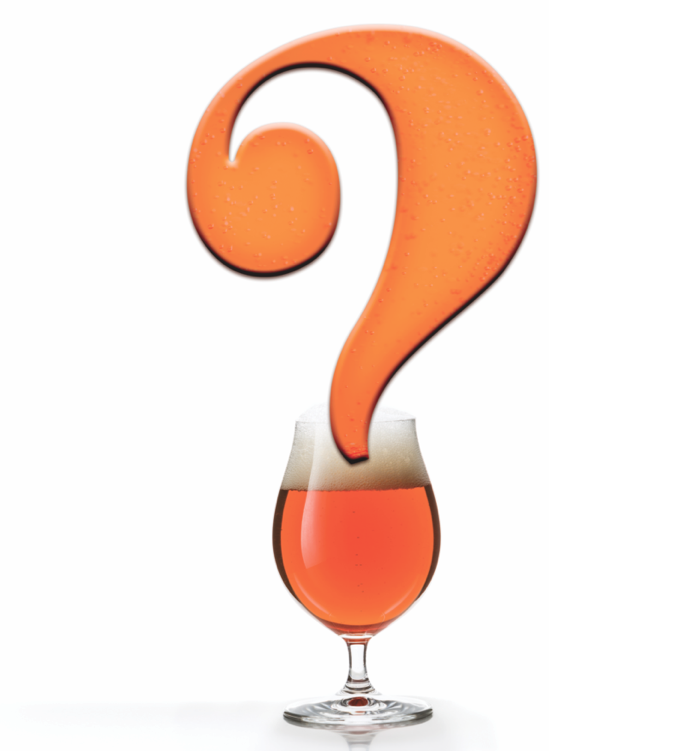Going Pro
Q: I’ve been homebrewing for a few years now, and the beer tends to turn out wonderfully. And not like, “I’m proud of my beer and I think it’s great” wonderful, more that my friends would rather buy my beer than go to the liquor store for a 6-pack of whatever. So I have a few questions for you. What are the federal regulations for selling alcohol (direct to consumer, or to a bar, not through a liquor store)? Where is a good resource for state and local rules (I’m in Denver, Colorado)? What else should I know before letting my homebrew pay for itself?
— PJ Hoberman • Denver, Colorado
A: At one time I taught brewing science classes with Dr. Michael Lewis, now retired professor of brewing science at the UC-Davis, and one of the classes we taught was focused on how to go about opening a brewery. Scott Smith, founder and owner of Coopersmith’s Pub & Brewing in Fort Collins, Colorado, and Tom McCormick, who founded McCormick Beverage Company in 1984, the nation’s first wholesale beer distributorship to exclusively sell microbrewed and specialty import beers, were also a key part of our touring group and Tom and Scott covered the business side of brewing.
As it turns out opening a brewery today is not an overly complicated endeavor, as once was the case. Many of the hurdles that microbrewing pioneers faced were due to the fact that new breweries were not at all common in the United States and the government employees working in alcohol control were simply unfamiliar with the requirements of opening a new brewery. They knew all about what existing breweries needed to do to stay legal, but helping someone file the requisite paperwork for a new brewery was alien. Of course other hurdles were present because established breweries really did not want any competition and state and federal laws had been influenced by those with power to advance their agendas.
The most important part of being a legally operated brewery is paying taxes. Remember how the feds nailed Capone? It was tax evasion. And to be legal you must pay both federal and state taxes on the beer produced for sale and local sales tax on beer that you sell. Of course you also must be a licensed brewery so that your tax payment can be tagged to your brewery license.
OK, so I’ll give a high-level overview of alcohol beverage law. All breweries in the United States must file paperwork with the Alcohol and Tobacco Tax and Trade Bureau (TTB), formerly the BATF or Bureau of Alcohol, Tobacco and Firearms. The brewery license with the TTB must be renewed annually and with it the license holder is required to file detailed records of brewing operations. The records not only help determine how much tax you owe, but the records are also used by the government to do a sanity check of your brewing operations. Since you must report the usage of malt and hops and beer loss, agents can spot reports that may be fraudulent. Also, when the TTB comes in for an audit they will look at brewing records, raw material invoices and whatever else they wish to examine to determine if your operation is legit. Again, the key here is tax collection.
Breweries also must have the state and local licenses required for the business. In the state of Missouri (where I live) we have a microbrewery license that allows the license holder to brew beer and to sell the beer on premise at the brewery or through a distributor. We also have local licenses that allow us to operate our business and to sell alcohol at our brewery; the latter is our liquor license. In the state of Missouri breweries cannot sell beer directly to retail outlets, such as liquor stores, bars or restaurants.
Some states, including Colorado, do allow brewers to self distribute and this ability is nice for small producers who want to distribute their own beer and retain control over this part of the business. You may be familiar with the term “three tiered system.” The three tiers of this system are production, distribution and retail sales. The three tiered system was established upon the repeal of Prohibition and the idea was to prevent large companies from dominating the production, distribution and sale of alcohol. In order to separate these three tiers a company could only hold a license to do one of these three activities. When brewpubs came on the scene states had to create laws to permit special exceptions to three-tiered laws since brewpubs produce beer and sell it directly to the consumer. Some states went further and gave brewers the ability to once again do everything. This subject could literally fill an entire text book and interested readers can find all sorts of information on this subject at a local library.
So getting the licenses are really not that difficult these days, especially when dealing with agents who have filed the paperwork before. Colorado is no stranger to craft brewing and you will likely get a lot of assistance to do this by simply contacting the Colorado agency that regulates brewing and expressing your desire. They can help point you to the local TTB office where you can get the required forms for your federal brewing license. One thing you will need is a designated brewing premise and a bond or surety note guaranteeing that your taxes will be paid.
Although many maturing craft brewers thought the term “microbrewer” to have a pedantic connotation and intentionally distanced themselves from the classification, some very small brewers have embraced the term “nanobrewer” to describe their very small and very specialized little breweries. I think what you propose is simply to establish a legal, albeit very small, brewery and to join the world of nanobrewing. Good luck and let us know if you follow through with this!



